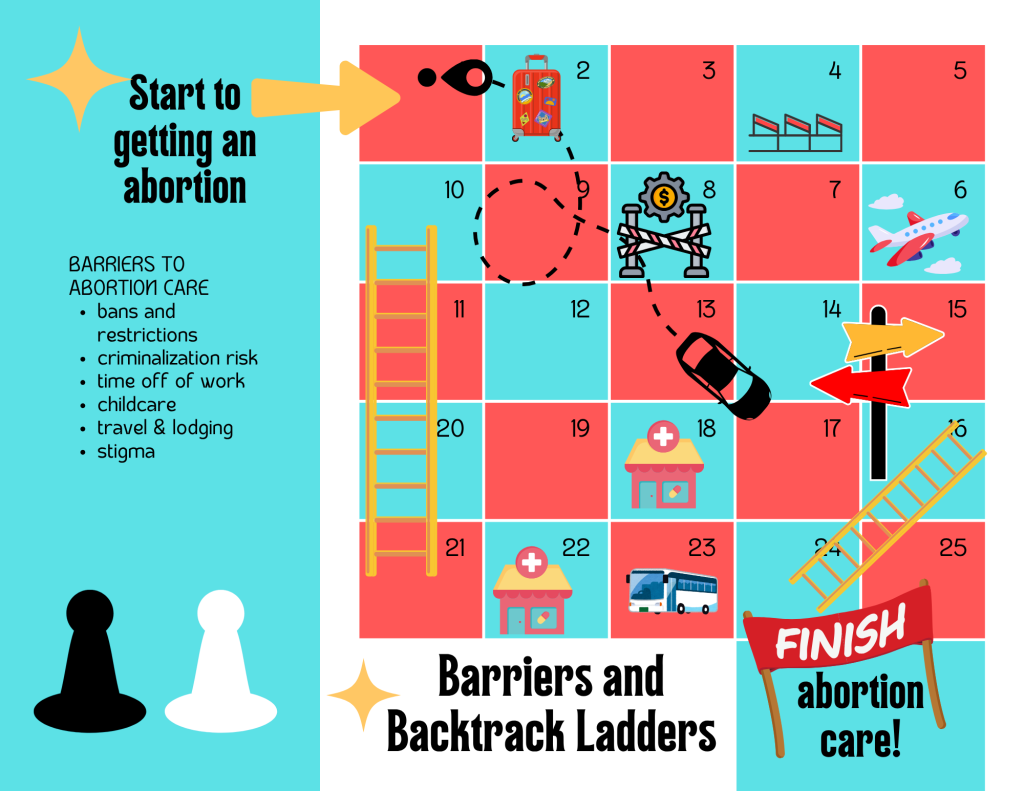By Lakeynn H.
You or someone you love has had an abortion, which means that it’s highly likely that you or someone you know has faced at least one of the many barriers that come with accessing abortion care in the United States. On July 1, 2023, North Carolina’s Senate Bill 20 (SB20) went into effect, requiring two in-person visits to our clinics to receive abortion care. The first visit consists of a consultation with a Registered Nurse or physician using state-mandated language at least 72 hours before the abortion healthcare appointment. This state-mandated delay law is the longest delay for abortion care in the entire country. No other form of healthcare requires these medically unnecessary delays; instead, they trust that people are capable of making thoughtful decisions about their healthcare options. It’s absurd.
This means that our patients have to arrange childcare not once, but twice, and for some, even three to four times. These medically unnecessary laws impact work, home, and finances for our patients and their families. The effect is felt in the broader circle, as families, friends, doctors, and employers are affected by the requirements for or refusal of support in helping with transportation, childcare, lost wages, lodging, and more.
These laws are incredibly burdensome, and it shouldn’t be this way.
Let’s paint a whole picture. Our patients often travel from great distances to reach us, requiring multiple flights, hotel rooms, and local transportation, all while being away from their community. The in-person requirements of a 72-hour consultation are critically impacting the lives of pregnant people who are simply seeking basic healthcare. If you went to your doctor for high blood pressure, it’s unlikely that they would read state-mandated communication about the positive options of not treating your high blood pressure and then require you to return 72 hours later for treatment. Yet, women are dealing with the devastation and turmoil caused by these barriers targeting their intelligence, health, and way of life.
Delays in abortion care increase medical risk, compromise our patients’ health, and safety. The American College of Obstetricians and Gynecologists (ACOG) has long opposed mandatory waiting periods, noting that they “do not enhance informed consent and may actually be harmful by delaying care.” Again, absurd that these requirements would be unheard of in any other healthcare setting.
Abortion care providers are also affected by these undue, targeted regulations that make abortion care more challenging to provide and keep our clinics open. We now see the same patient twice before their care can be provided, so the doctors, nurses, staff, and administrative tasks are now doubled. Appointment schedules must accommodate unusual flight and transportation needs, as well as additional funding requirements, and appointment times that best suit each patient’s personal life needs. Our patient navigators, funders, and frontline staff work so hard to accommodate our patients. The creativity and flexibility of our team are inspiring.
At the same time, we find it frustrating that we must also be the ones to educate the public, voters, legislators, and others about these onerous laws and their devastating impact on our patients and communities. According to a 2024 report by the Society of Family Planning, abortion rates declined by almost 14% in the South after SB20 and similar abortion restrictions and bans took effect, not because the need for abortion went away, but because access did. Again, for people in the back, it shouldn’t and doesn’t need to be this way.
Our patients make thoughtful, considered decisions about pregnancy and consult with those they trust, including us, before their first appointment. The only ‘change’ that this 72-hour in-person delay brings is an unnecessary delay in healthcare, not a change of mind, because our patients are resolute in their decisions. We will continue to trust and support them in any way we can, so they can overcome this real-life nightmare of Chutes and Ladders to access basic healthcare.
Sources:
- SB20 Legislative Text. North Carolina General Assembly.
- Society of Family Planning. (2024). #WeCount Report
- American College of Obstetricians and Gynecologists. (2023). Policy Statement on Abortion Access

